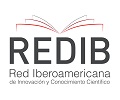Submitting of works
Submitting of Works
The call for the submission of articles and reviews is always open. Depending on the quantity of works received and accepted, it will be communicated in which issue they will be published, respecting the date of approval as an organizing criterion. Given the continuous submission of articles and reviews (continuous flow system), it is clarified that the number to be published in May closes in March of the same year, and the number to be published in November closes in October of the same year.
To publish a "Dossier," it is necessary to submit a proposal to the Editorial Board of the journal with at least one year in advance. This proposal, in charge of the dossier coordinator, must contain the topic to be addressed. If the proposal is approved by the Board, a call for the submission of works that will integrate it will be opened. These works will be subject to evaluation by two external referees through the double-blind system.
Translations, interviews, and articles in the Archive and Submissions sections come from proposals made by the scientific committee.
Protocols for writing articles
- Length
Articles can have a maximum of 10,000 words (excluding bibliography). Longer articles will not be accepted.
- Heading
Title of the article: centered and in bold (in Spanish and/or Portuguese and in English).
Author's name, university and/or institution to which they belong, country, and email address. The name of the affiliated institutions must be indicated in full, not just through acronyms.
ORCID identifier (at https://orcid.org/).
Abstract of up to two hundred words (in Spanish and/or Portuguese and in English): justified and single-spaced. Font: Times New Roman 10. The abstract should be a short text that describes the topic of the work, the methodology used, and its conclusions. It should not include bibliographic citations.
Keywords (in Spanish and/or Portuguese and in English): five, separated by commas (,). Font: Times New Roman 10.
- Body of the text
Font: Times New Roman 12. Line spacing: single. Alignment: justified.
Margins: top and bottom: 2.5 cm; left and right: 3 cm.
No indentation.
Use italics for emphasis, never bold, capital letters or underline.
Do not number pages, add images, dates, logos, or any type of design outside the body of the text.
- Citations, bibliographic references and notes
APA (American Psychological Association) 7th Edition rules are followed: https://normas-apa.org/wp-content/uploads/Guia-Normas-APA-7ma-edicion.pdf
Authorship Statement
In the case that the article submitted to the journal has more than one author or required the participation of other collaborators, the work must include, at the end, a statement of authorship and participation roles. In the taxonomy of academic collaboration networks (CRediT), different collaboration roles are listed, such as data curation, conceptualization, writing (review and editing), or supervision, among others (https://hdlab.space/taxonomia). This taxonomy aims to provide credit to all roles involved in a research process and ensure that they are visualized and recognized during the communication of the results.
When there are no collaboration roles beyond authorship and the authors have shared the writing of the work, it may be declared: "X and Y contributed jointly to the writing of this article".
Self-Archiving Policy
El taco en la brea authorizes authors to deposit the published version of articles (postprint) in repositories, websites or academic networks without commercial purposes, respecting the integrity and image of the Journal. It is mandatory that the published version includes information about the DOI assigned to each article, the name of the journal and the publisher, and that it respects the terms of the CreativeCommons license under which it was published.
Supporting data for research
Authors submitting articles to the journal must ensure the availability and preservation of the data used in them, in accordance with Law No. 26,899 on Digital Repositories. If the article is accepted, El taco en la brea recommends depositing the data generated in one of the research data repositories (such as SciELO Data), prior to its publication, so that the complete citation of the deposited data can be included in the article. The citation of the data set should appear in the references section of the resulting publication. Citing the data set allows for recognition of authorship and facilitates its location, validation, and reuse, promoting transparency in scientific research. Each data set and subset of data should be cited independently with its own DOI or similar identifier.
When it is not possible or feasible for the data to be available openly (due to confidentiality or sensitivity issues), it should be shared through a controlled access repository.
Guidelines for Writing Reviews
Rules for writing reviews
The same protocols are followed as for writing articles, only with the following format:
1. Information about the reviewed book: About: Title of the book, Author's name and surname (unabbreviated). Place of publication: Publisher, Year; ISBN; number of pages in the book.
2. Likewise, the author of the review must include in the text file an image of the cover of the reviewed book in JPG format, in good definition and in reduced size (this image will appear as metadata).
3. Name of the author of the review, university and/or institution to which he belongs, country and email.
Two types of reviews will be accepted:
a) Standard Review: The review cannot exceed 1000 words.
b) Review-Essay: Starting from a recently published book, other books by the same author can be included, preferably not too far apart in time, but the focus of the work must remain on the book that represents the novelty. This type of review involves a more comprehensive and interpretive work. It cannot exceed 2000 words. Longer reviews will not be accepted.
How to submit works
Submissions can be sent to the email address eltacoenlabrea@gmail.com or through OJS.
To ensure proper receipt of the work, if an article is submitted for one of the proposed dossiers, the title of the work must be indicated in the subject line as well as in the body of the email (or in the "Comments for the Editor" section of OJS).
The reception and return of works are organized by the Editorial Secretaries: Silvana Santucci and Daniela Fumis.
For any printed postal submissions that need to be made, please address them to:
Analía Gerbaudo - Centro de Investigaciones Teórico–Literarias – Facultad d Humanidades y Ciencias –Ciudad Universitaria – Paraje el Pozo (3000) Santa Fe, Argentina.




















